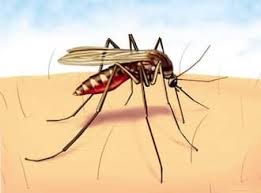Malaria Drug That Makes Human Blood Too Deadly For Mosquitoes
Malaria drug that makes human blood too deadly for mosquitoes to be given to about 32,000 Kenyans.
According to the experts, if a mosquito bites you, it must die a few hours later, poisoned by the same blood it sucked.
The new development in the health sector is so exciting possibility, that has already been proven in parts of Kenya.
When people take tablets of Ivermectin, a common used to treat head lice and elephantiasis, their blood becomes poisonous to mosquitoes for at least 28 days.
Once the insects suck blood from the person who has taken the drug, about 96 per cent of them die after the bite and cannot bite another person to transmit malaria.
However, it is not clear whether this can be an effective way to control malaria in a larger community.
Scientists from Kemri-Wellcome Trust have said that the drug will administered to about 32,000 people in selected areas of Msambweni and Lungalunga subcounties in Kwale County for a start.
The participants are assigned to two arms, with one arm receiving Ivermectin, the trial drug, and the control group receiving albendazole, a medication used to treat certain tapeworm infections.
Dr. Marta Maia and Dr. Joseph Mwangangi, the study’s two primary investigators, said they will evaluate the efficacy and safety of using ivermectin to stop the spread of malaria.
Dr. Mwangangi stated, “Our goal is to improve the tools we now have for controlling malaria, and what better method than to examine an affordable and accessible medicine like ivermectin, which has a well-established safety profile.
The Kemri-Wellcome Trust is carrying out the exercise as part of the Broad One Health Endectocide-based Malaria Intervention in Africa (Bohemia) project.
The project’s goal is to assess Ivermectin’s efficacy as a cutting-edge, supplemental approach to lowering mosquito populations, which in turn lowers the risk of malaria transmission.
In connection with related studies led by the Barcelona Institute of Global Health (ISGlobal) and sponsored by Unitaid, the Kenyan experiment is the second, according to a statement from the Wellcome Trust.
In Mozambique, the second study is being carried out.
Bed nets are still the primary way of protection, according to the Kilifi-based Trust, but mosquitoes are evolving and developing chemical resistance.
Additionally, mosquitoes have modified their behavior so that they now bite when both people and animals are not protected by bed nets. Scientists now need to find cutting-edge methods to use in addition to bed nets to combat malaria as a result of this.

“Administering Ivermectin to as many people as possible at the same time in a community might be a new way to control malaria transmission. With Bohemia, we are trying to generate evidence for this strategy,” Dr Maia, the co-principal investigator, said.
Multiple studies conducted since 2010, including one in Kisumu, show that malaria-carrying mosquitoes die after feeding on individuals who have ingested the drug, Ivermectin.
The Kisumu study, led by the Liverpool School of Tropical Medicine, tested the safety and efficacy (in terms of mosquito-killing capacity) of higher doses of ivermectin.
The researchers treated 141 adults with uncomplicated malaria with the antimalarial treatment plus either three days of ivermectin (600 or 300 microgramme/kg per day) or a placebo.
Results show that the blood of patients treated with both ivermectin doses killed mosquitoes, even 28 days after treatment.
According to the Barcelona Institute of Global Health, modeling analysis suggested that adding the 300 microgram/kg dose of Ivermectin to mass antimalarial drug administration could significantly reduce malaria prevalence by an additional 44% in low transmission settings aiming for malaria elimination.
According to the institution, “it will be vital to prove the safety of the new treatment schemes if the dose or frequency required to limit malaria transmission is higher.
According to pharmacokinetic modeling, a three-day regimen involving a daily dose of 600 mcg/kg could maintain ivermectin concentrations that are fatal to Anopheles mosquitoes for at least a week.
